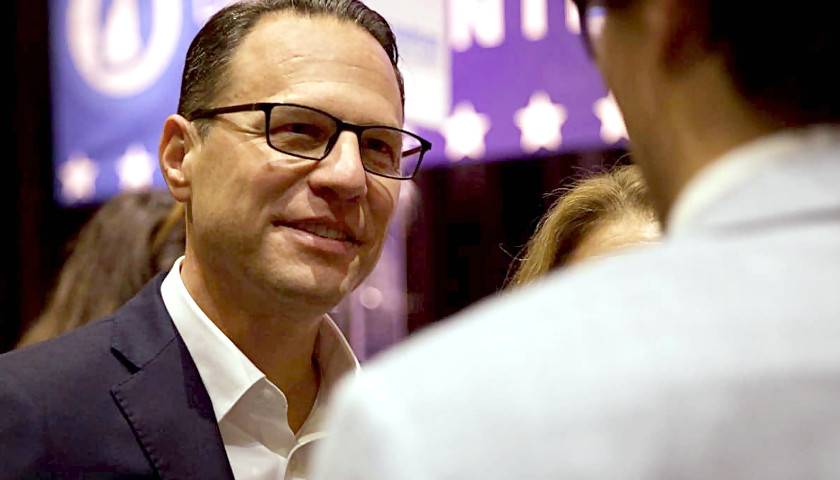An optimistic Penny Schwinn, Tennessee’s commissioner of education, presented the department’s2023/2024 proposed budget to Governor Lee and his advisors. For his part, the governor was cordial, congratulatory, and to the point – often raising questions during the 30-minute presentation.
With confidence in his re-election bid running high, Governor Lee scheduled state departmental budget hearings for Wednesday, November 9, one day after Tuesday’s statewide election that awarded him four more years as governor. In the wake of securing his job for another term, Governor Lee indicated that education would remain a top priority going forth.
During his victory speech Tuesday, Lee voiced a continued commitment to growing parental choice options, while touting his increased investment in public education during his first term:
“I’m very proud of the fact that we have made historic investments in our public education system, and we have passed teacher pay raises every year since we’ve been here. I’m also proud of the fact that we have given more school choices for parents who want something a little different for their kids. And I’ll remind you for the next four years – and remind people all across the state – that those two ideas are not in conflict with each other. We can fund public schools and provide alternative opportunities for children at the same time if we are committed to funding students and not systems.”
Seven departments were scheduled to present post-election on their wish list for the coming year. Commissioner Schwinn and the Tennessee State Department of Education (TDOE) were second in line.
She opened by announcing that next year’s budget requests would be aligned with familiar strategic initiatives. The same initiatives have been in place since late 2019/early 2020. These include high-quality academics so that all students are post-high school-ready, to ensure that Tennessee schools have great teachers, and to keep that pipeline flowing.
The department intended to employ five core actions to bring fruition to these initiatives. Schwinn outlined these as:
- Reading 360, as aligned with the Literacy Success Act
- Tennessee Accelerating Literacy and Learning Corps (ALLCORP) – high-dosage tutoring
- Innovative Schools Model, which last year benefited from a $500K investment included in Governor Lee’s budget, with 24 school districts awarded 21 grants for Innovative High School Model programs to be implemented, totaling $30 million
- Grow Your Own – National Teacher Apprentice Program
- Tennessee Investment in Student Achievement (TISA)
What followed for the next 30 minutes was a presentation long on superlatives and exaltations, but short on data and details, delivered at Schwinn’s typical breakneck pace. Despite the commissioner’s best efforts to bulldoze through the presentation, Lee found time to raise questions about his signature programs, questions that focused on implementation over vision. His intent appeared focused on drawing out more answers about how the work was being done, as opposed to what work was being done.
Five minutes into Schwinn’s presentation, while she was describing the state-sponsored “Grow Your Own” initiatives, Lee interrupted abruptly and, with typical bluntness, declared his intent to ask questions intermittently:
“Tell me about how that program has – what the interest in that has been so far? You know, as we think about funding line items, what’s the uptick? How is that being utilized? We have a cohort starting in January, I think – how big is that cohort going to be?”
Schwinn responded by offering praise for the promise of the program and her excitement over the 650 applicants currently enrolled. She followed up with a breakdown of the number of projected January enrollments in various state programs, totaling 350 applicants working with 40 to 50 districts.
Governor Lee raised similar questions around initiatives involving career and technical education, summer programing, and TISA – the state’s new school funding formula.
Neither he nor his advisors seemed pleased when informed that districts would not be receiving their individual funding information for the coming fiscal year until late January/early February, due to the TDOE using October, November, and part of December to gather student data that would impact the amount each district received in state funding. In the past, data was compiled and completed in October.
The commissioner reassured everyone that this was merely a byproduct of working with a new system and a desire to get the “exact number and the coding correct.” It is her expectation that in the future, the process will become routinized by both the TDOE and the individual districts. As a result, robust data would be available much earlier.
The hearing wrapped with Governor Lee praising the department for their work and telling Commissioner Schwinn that she and her team “should be proud. They’ve done a lot – in a very difficult working environment.”
Since the budget hearing, the Tennessee Department of Education has released its 2020-2022 Accelerating Tennessee Report, highlighting how Tennessee continues to take bold action and increase opportunities for students across the state through strategic investments and initiatives aimed at accelerating academic achievement and promoting future success.
Governor Lee will now take Ms. Schwinn’s requests under advisement, as he crafts the first state budget of his second term.
–









“Berkley” Schwinn needs to go back to California, but Lee would be too embarrassed to fire her. We are stuck with both of them for another 4 years. Now that is a very sad thought.